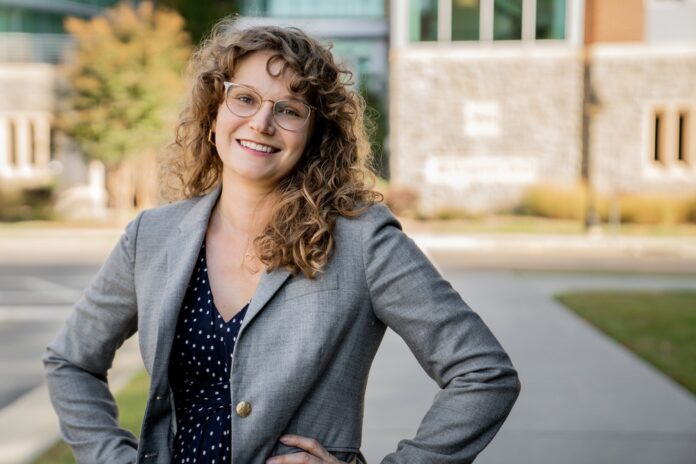Sugary doughnuts, ice cream, potato chips – what makes these junk foods so satisfying?
Foodies might respond by describing a snack’s flavorful ingredients and texture while marketers might nod to the effects of deliberate packaging and punchy ad campaigns.
But for neuroscientists such as Alexandra DiFeliceantonio, the reason why people choose junk food may go beyond their eyes, ears, and taste buds altogether.
DiFeliceantonio, a new assistant professor in the Fralin Biomedical Research Institute at VTC’s Center for Transformative Research on Health Behaviors, studies how the brain integrates peripheral signals to guide food selection and eating behaviors.
Using multimodal brain imaging and metabolic measures, her laboratory in Roanoke is studying food motivation to ask new questions about substance abuse.
“Commonly abused drugs all increase dopamine release in the striatum, a brain region that we’re learning is also activated when people ingest high-fat, high-carb foods,” said DiFeliceantonio, who is also a faculty member in Virginia Tech’s College of Agriculture and Life Sciences in the department of human nutrition, foods, and exercise.
Her previous studies show that people value foods that combine high levels of fats and carbs more than high-fat-only or high-carb-only foods on their own.
“Fat and sugar are rarely available together in all-natural foods, like fruits, grains, and vegetables. But modern, processed foods that combine high fat and sugar are causing a supra-additive effect by activating two different signaling pathways.”
Brain scan studies back up this assumption. Her research shows that when people ingest high-fat, high-carb foods, dopamine is released in their brain’s striatum twice: once while it’s being eaten, and again 30 minutes later as it’s digested.
“We want to know more about these post-ingestive physiological signals and how they might be influencing food associations to make that food seem even more appealing next time.”
While completing a bachelor’s degree in psychology at Sweet Briar College, she became interested in reward learning and motivation. This led her to pursue a master’s degree and doctorate in bio-psychology from the University of Michigan, where she studied how opioids alter motivation. During her postdoctoral training at Yale University and the Max Planck Institute for Metabolism Research in Germany, she examined the role of post-ingestive dopamine signaling in eating behavior and food choices.
“Suboptimal diets are a leading cause of preventable death in the U.S.,” said DiFeliceantonio.
“If we can understand the physiology underlying food motivation, we can build on food industry regulations and hopefully improve human health.”
Her laboratory at the Fralin Biomedical Research Institute in Roanoke, Virginia is anticipated to begin recruiting research participants from the community later this spring.


